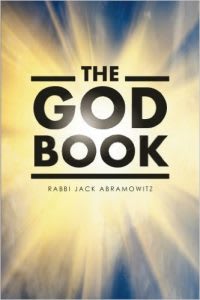18. The Revelation at Sinai
The Rambam tells us that it is obvious from the Torah that what Moshe experienced at Sinai was very different from what everyone else saw and heard. [II, 33] Only Moshe was actually addressed by God, which is why the Torah uses the second-person singular.1 Moshe's unique role is evident from such verses as Deuteronomy 5:5 ("I stood between God and you at that time in order to tell you the word of God..."), among many others. The people heard sounds (see, for example, Deut. 4:12, 5:20, et al.) but they could not make out distinct words.
At this point, the Rambam brings up a familiar Midrash, also mentioned in the Talmud (Makkos 23b). This famous Rabbinic statement maintains that the Jews heard the first two of the Aseres HaDibros (the "Ten Commandments") directly from God, just as Moshe did. He explains this as follows:
The first two commandments address the existence and uniqueness of God. The Jewish people came to understand these principles the same way that Moshe did, through reason and experience. Therefore, in this matter they were no different from Moshe, who also had to learn these things first-hand, rather than relying on prophecy alone. This is actually a general rule: a prophet has no advantage when it comes to something that could be deduced rationally. This is what is meant by Deuteronomy 4:35: "You have been shown to know that Hashem is God, there is no other aside from Him." This is something that can (and should) be demonstrated, unlike all the other commandments, which are mandated as a matter of authority rather than as truths to be contemplated intellectually.
Regardless, it is clear from the Torah that the Jews heard something at Sinai. It may not have been intelligible to the people as speech but Moshe understood it as the first two of the "Ten Commandments," which he then interpreted for the people. The Sages support this understanding by applying Psalms 62:12, "God has spoken once; twice I have heard this," and Deuteronomy 5:18, "A loud voice, which was not heard again." The people were absolutely terrified by the Divine sounds they heard at Sinai, which is why they requested that Moshe go and receive the Torah for them, as we see in Exodus 5:21-23, "Why should we die? ... You go near...."
While Moshe heard the commandments clearly from God, the people heard Divine but indistinct sounds. We see this in Exodus 20:14, "and the people saw the sounds." They perceived some supernatural phenomenon but they did not hear articulate speech in the same way that Moshe did. In this same manner, the people heard a Divine voice that God created specifically for this occasion. They understood this voice to contain the first two of the Aseres HaDibros, but they were incapable of comprehending it to the degree that Moshe did.
Only Moshe received his prophecy directly from God. Other prophets received God's messages through angels. [II, 34] The Rambam demonstrates this by cross-referencing Exodus 23:20 ("Behold, I will send an angel before you...") with Deuteronomy 18:18 ("I will raise up a prophet for them from among their brethren..."). The phrase "beware of him and obey him," which were said in the context of the former (Exodus 23:21), clearly refer to the latter. This is because ordinary people don't see angels and certainly would not dare to disobey their instructions. Rather, the angel will given instructions to the prophet, and the people are warned not to disobey when they hear these instructions through him. (These two verses are connected because in both cases God says that they speak in His Name - see Exodus 23:21 and Deuteronomy 5:19.)
By telling the people this, God was informing them both that the revelation at Sinai with its attendant miracles was a one-time event and that only Moshe would receive prophecies directly from Him. Other prophets would receive their messages through angels.
-------------------------------------
1. In Hebrew, that's the difference between the words "atah" and "atem." Formerly, this distinction was made clear in English by the use of "thou" for the singular. Our current use of "you" for both singular and plural has made this distinction harder to see in translation.

